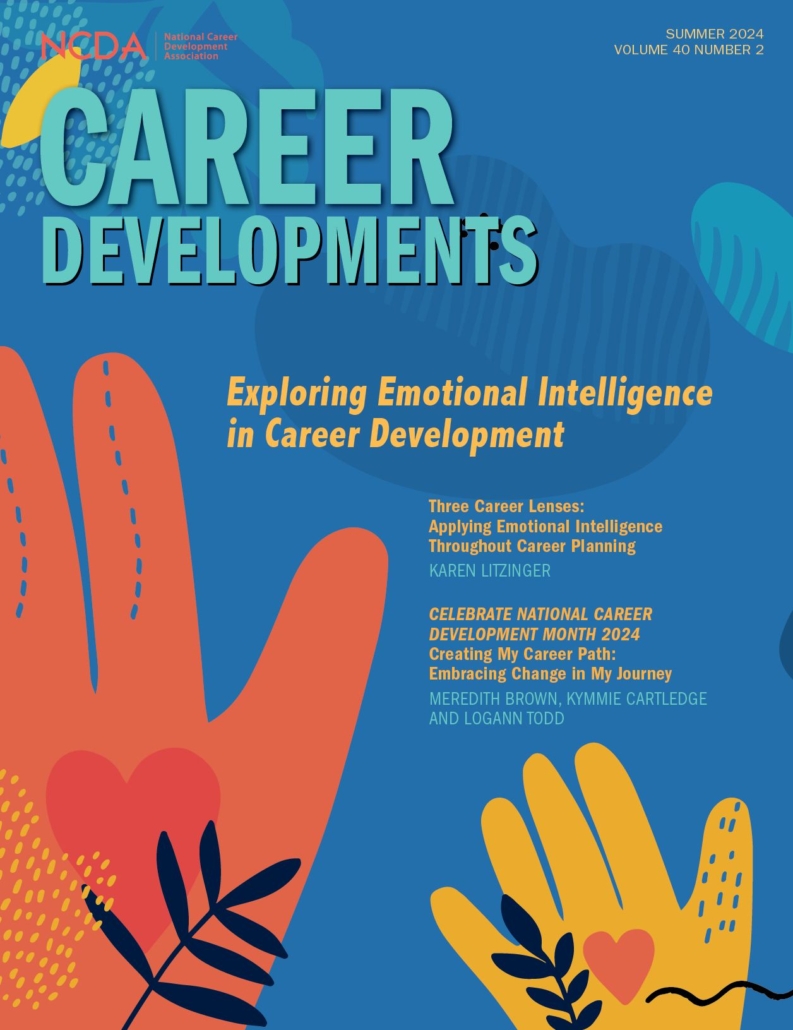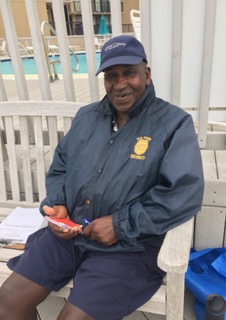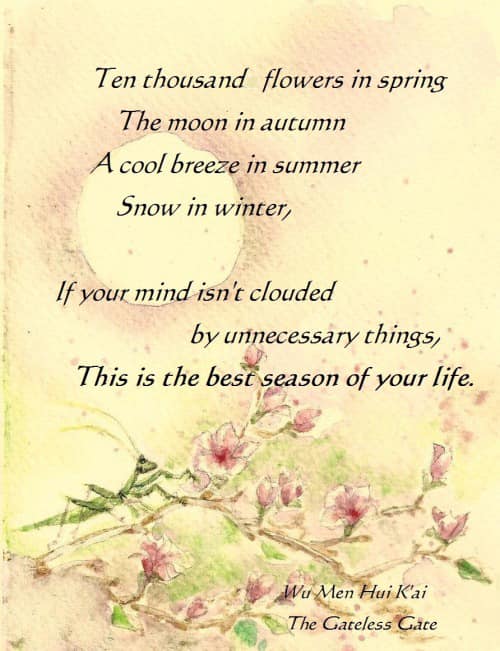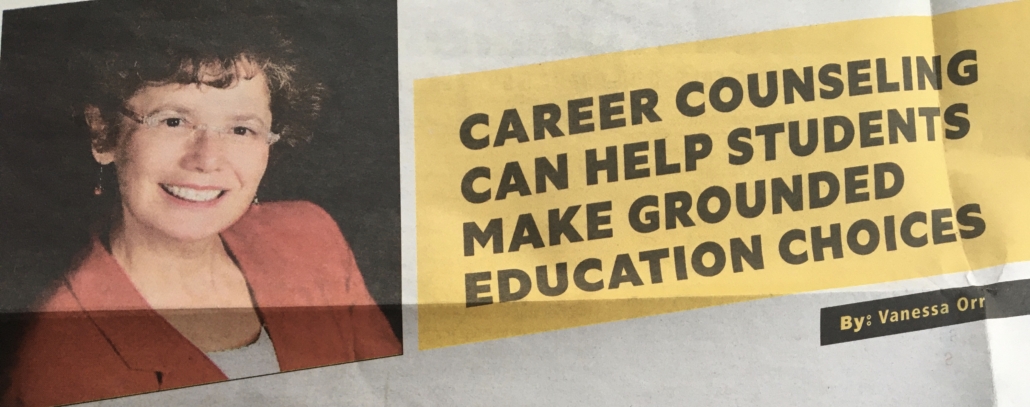I was honored to be invited to write the Focus article on emotional intelligence for the National Career Development Association Quarterly, Summer 2024 issue. Although the audience is career professionals, the material and exercises are relevant to anyone. With addressing career-decision-making, job search, and career management, the information is applicable for a lifetime. The article is four pages, so I highly recommend clicking the PDF folder below, to make it an enjoyable read because of the amazing graphics. In case you can’t access it, the text version is below too.
The article, Three Career Lenses: Applying Emotional Intelligence Throughout Career Planning, by Karen Litzinger, originally appeared in NCDA’s magazine, Career Developments, at www.ncda.org. Copyright August 2024. Reprinted with permission.
Three Career Lenses: Applying Emotional Intelligence Throughout Career Planning
By Karen Litzinger
We all likely know someone intellectually bright who struggles with career success and satisfaction. Others may not have the same grades or credentials yet seem to flourish. The secret sauce in a happy recipe for life and work may be high emotional intelligence.
Daniel Goleman’s ground-breaking work in his book, Emotional Intelligence: Why It Can Matter More Than IQ remains a cornerstone in the field. Often referred to as EI or EQ, emotional intelligence is both understanding and managing one’s own emotions as well as recognizing and understanding others’ emotions. Goleman posits that EI may be even more important than cognitive intelligence (IQ) in predicting positive life outcomes.
The Five Key Components of Emotional Intelligence (Goleman, 1995):
- Self-Awareness – Recognizing and understanding one’s own emotions, including the impact on thoughts and behaviors.
- Self-Regulation – Managing and controlling one’s emotions, impulses, and behavior in different situations.
- Motivation – Focusing/directing emotions to achieve goals, persisting when encountering challenges, and maintaining a positive outlook.
- Empathy – Understanding the feelings and perspectives of others to enhance interpersonal relationships.
- Social Skills – Managing relationships effectively, including clear communication, effective teamwork, and conflict resolution.
We often think of EQ as related to dealing with “office politics” or career management. Yet EQ plays a role in how a student makes and pursues education and career choices. How a job seeker deals with the emotions of job loss or application rejection could determine self-sabotage or success.
This article looks at Goleman’s (1996) five components of emotional intelligence through three lenses: Career Decision-Making, Job Searching, and Career Management. Action strategies to enhance our efforts as counselors and coaches are offered for each of the five components. The framework can be used to identify possibilities for a holistic approach.
Career Decision-Making
- Self-awareness: Help constituents explore interests, skills, values, and personality in career choice and understand decision-making styles. Explore the impact of career beliefs, family and societal pressures, and emotional and physical challenges. Ask about body sensations which can lead to identifying emotions and preferences.
- Self-regulation: Encourage well-informed decisions rather than impulsive choices that might be rooted in the emotional urgency to decide or based on narrow perspectives, such as the latest “hot” careers. Engage in career conversations with loved ones that are calm and rooted in information rather than excessive emotion or argumentation.
- Motivation: Listen to what is presented and offer tailored help to give hope. Present concepts and activities in manageable chunks so as not to overwhelm. Share that many career and educational paths are good choices, and there is no one “right” decision. Give positive feedback when career exercises are completed. Review progress and where the process is heading to show the big picture.
- Empathy: Guide constituents to see that their loved ones’ ideas or pressures may be rooted in concern about well-being or financial security. Recognizing that we all have different values at different stages can help a person see things from others’ perspectives. When not hearing back from a contact for an informational interview, provide a reminder about how much email everyone receives.
- Social Skills: Role-play how to communicate about career decision-making with loved ones in ways that enlist support rather than conflict. Educate about informational interviews, including introducing oneself, identifying questions to ask, and having a thank you protocol. Encourage patience in hearing back from requests in this age of quick turnaround expectations.
Job Searching
- Self-awareness: Normalize negative emotions regarding loss or rejection and help clients understand the importance of processing. Share that the emotional roller coaster of emotions, including shaken confidence, is common. Take time at the beginning of meetings to ask how the person is doing rather than rushing to job search advising, as unexpressed emotions may block progress.
- Self-regulation: Discuss how frustration may come across in networking or job interviews in terms of words, tone, and nonverbal behavior. Coach and role play about how to avoid talking negatively about a past employer or situation or doing so in a brief, positive, and productive manner. Provide resources for stress management, counseling, or therapist referrals based on scope of practice.
- Motivation: Provide stories of hope to counter pessimism and inaction. Encourage looking at others’ success as potential for their own rather than through a lens of envy. Remind clients that it only takes one offer to reach success. Share stories of famous people who were rejected many times before success, such as Walt Disney, Stephen Spielberg, and J.K Rowling.
- Empathy: When not hearing back from networking contacts or recruiters, remind your clients that it could be because they are busy or experiencing their own challenges. If a job seeker is envious of another’s success, ask if they really know what efforts or challenges that person went through in obtaining it.
- Social skills: Teach and role-play interviewing and networking skills. Communicate that small talk is part of relationship building at the beginning of interviews and in networking settings. Review job search correspondence, including thank you messages. Frame negotiations as requests rather than demands. Remind clients that hiring decisions are about how a candidate fits into a team as much as about job-related skills.
Career Management
- Self-awareness: Help clients direct their career path based on self-awareness and preferences rather than being pulled into roles by employer needs. This may include being aware of strengths that are not interests. Explore assessments and 360 feedback to learn of strengths and areas for growth.
- Self-regulation: Share tips like pausing before speaking, waiting 30 minutes before sending a sensitive email, and asking a trusted individual to review emails. Encourage finding a therapist or counselor, or trusted friend to discuss work issues with rather than colleagues.
- Motivation: If disengaged, raise questions about whether the field, industry, or employer is a good fit and whether exploration of options may be helpful. If one’s career is not progressing, encourage trying new angles rather than focusing energy on what didn’t work in the past. Remind the person to do one’s best despite burnout or while job searching so as to leave on good terms with positive references.
- Empathy: Help clients understand that colleagues may not be supporting their ideas or speaking up on bullying actions due to their own fears. Raise awareness that a supervisor may be experiencing conflicts between supporting staff and meeting the demands of superiors. Model fostering respect for others’ points of view and ideas.
- Social skills: Educate about the importance of relationship building along with completing work tasks and demonstrating competence. Offer to review emails and role-play difficult conversations. Encourage participation in social events of the organization and profession.
Name, Tame, and Reframe
Understanding the relationship between thoughts, emotions, and behaviors can be a tool for emotional intelligence in career planning, especially related to the components of self-awareness, self-regulation, and motivation. Cognitive psychology is rooted in how distorted thoughts can lead to distressing emotions and maladaptive behavior (Beck, 1961) and was the precursor to Cognitive Behavior Therapy (CBT). The process of reframing negative thinking can be used by career practitioners at all levels.
Cognitive behavior model illustration – An activity to encourage client emotional intelligence:
Thoughts → Emotions → Behaviors
Name – Ask what barriers, concerns, or negative thoughts are at hand. Share any that have been observed or discussed. Encourage writing down the negative self-talk sentence. Inquire about what feelings result from saying that statement and what behavior might result from that feeling. If the individual is drawing a blank, share a few ideas and ask if these fit or if other ideas come to mind. Inviting the person to write down and/or sketch out the resulting feeling and behavior with connecting arrows further illustrates the concept.
Tame – The precursor to the Cognitive Behavior Therapy model, Rational Emotive Behavior Therapy, suggested disputing irrational beliefs to replace them with more adaptive beliefs (Ellis, 1962). This questioning and providing alternative evidence can diffuse or “tame” negative emotions that result from the original unhelpful belief.
Reframe – Ask what would be a more helpful sentence or belief to say to oneself rather than the original statement – not a Pollyanna affirmation like, “I trust the right path will come to me,” but something that is believable and makes them feel a bit better. Give examples if needed. Invite writing down the new reframed statement. Ask about resulting feelings and likely behaviors, inviting recording the new results.
Alternatively Lead with Emotions: Another angle for reframing could be first identifying the distressing feelings and then the possible unhelpful thoughts that preceded or followed the emotions. With that information, reframing thoughts can lead to more helpful emotions and behavior outcomes.
Career Decision-Making Example
Name: My parents (or partner) will never let me do this career. → fear → not exploring it/arguing.
Tame: How will you know unless you ask? What if I helped you find a way to explain how thought out your choice is and how to remain calm?
Reframe: Maybe I could explain it with a new angle and your help. → hope, willingness → strategizing, asking.
Job Searching Example
Name: No one is going to hire me because of my age (or my degree or my lack of experience, etc.). → depressed, anxious → procrastinating, giving up.
Tame: How will you know unless you try? Remember, it only takes one offer. Maybe someone will see your age as an asset because of wisdom or dependability. What if you take a course that shows your willingness and ability to learn new things?
Reframe: Even though there may be age discrimination, I can emphasize the positive aspects of my wisdom, reliability and recent learning, and then remind myself that I just need one offer. → more hopeful → willing to take action of applying or taking relevant workshops.
Career Management Example:
Name: I’m never going to get a promotion even though I’m such a hard worker. → frustration, anger → complaining, outbursts.
Tame: Hard work doesn’t automatically translate to a promotion. Have you asked for advice or feedback from others at your organization? Are there courses for hard or soft skills that might be helpful? A job change to another employer might be the necessary path.
Reframe: I’ll seek more advice and try one or two new angles and then probably look for a job at another company. → calmer, accepting → planning and productive action.
Stress Management: Coping, Band-aid, or More?
The EQ component of self-regulation naturally ties to techniques for stress management. It is better to punch a pillow than yell at an employer, right? These techniques may just be helpful coping band-aids to career challenges if not accompanied by self-awareness, empathy, and social skills. Beyond coping, these strategies may positively impact emotions and behavior.
Certain behaviors are known to release endorphins, often referred to as a “feel good hormone” and can come from these activities (Harvard Health Publishing, 2021):
- Exercise: Walking fast or other aerobic activities are most helpful for endorphin release, but any level of movement may help with stress management.
- Meditation: This technique of deep breathing and focusing one’s mind is the most researched, yet other breathing or mindfulness techniques can help with stress management.
- Music: All forms are helpful, including listening, singing, dancing, or playing an instrument.
- Laughter: A good belly laugh can reduce stress and could come from watching a comedy movie or viewing humorous video clips.
- Ultraviolet light: A walk on a sunny day releases endorphins and doing so in nature may increase the enjoyment.
Individuals in all stages of career development can benefit from stress management help for emotional regulation. A career professional can take an active role in helping clients by sharing a resource link, suggesting a technique, conducting a workshop, providing counseling, or referring to a therapist based on your scope of practice.
Moving Forward
Building emotional intelligence doesn’t have to feel like an extra task, rather it can be integrated into existing career planning activities. High EQ helps create success in both career and life. Many career practitioners likely already use EQ strategies and don’t realize it. Now appreciate the impact and importance!
Author:
Karen Litzinger ([email protected]) is the author of the award-winning book, Help Wanted: An A to Z Guide to Coping with the Ups and Downs of the Job Search. Karen spent over a decade in college career services and the last twenty years in private practice through Litzinger Career Consulting based in Pittsburgh, PA. She is a Licensed Professional Counselor, Board Certified Counselor, and Certified Career Counselor. Karen achieved professional-level status through the National Speakers Association and presents programs nationally and through video. For additional information about Karen and her book: KarensCareerCoaching.com.














